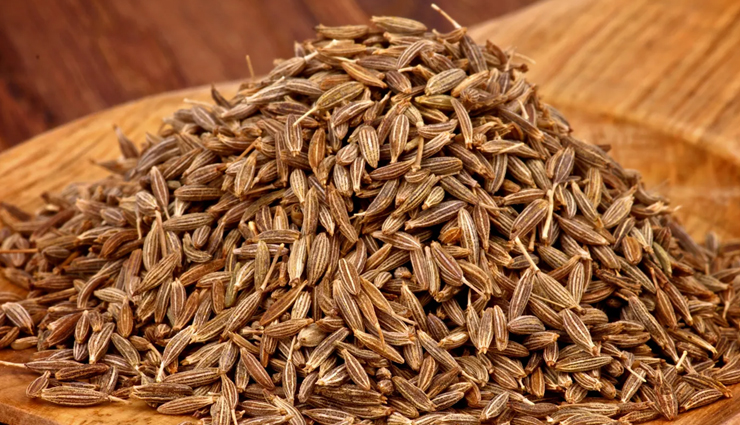- Home›
- Healthy Living›
- 11 Proven Health Benefits Of Jeera
11 Proven Health Benefits Of Jeera
By: Priyanka Maheshwari Tue, 18 June 2024 8:14:55

Jeera, also known as cumin, is a highly esteemed spice recognized for its distinctive flavor and extensive use in culinary traditions worldwide. Originating from the dried seeds of the Cuminum cyminum plant, jeera belongs to the Apiaceae family, which includes other aromatic plants like parsley, fennel, and caraway.
Cumin has a warm, earthy aroma with a slightly bitter and nutty taste. Its intense flavor enhances the taste of various dishes, making it a fundamental spice in global cuisines. Found in spice mixes like ras el hanout and used in dishes such as falafel and couscous.
Cumin seeds are rich in essential nutrients, including iron, magnesium, and vitamins A, C, and E. They also contain beneficial plant compounds such as flavonoids and polyphenols. Jeera is celebrated for its digestive properties, ability to boost metabolism, and potential to improve respiratory health. It’s used traditionally to treat indigestion, respiratory disorders, and as an antimicrobial agent.

# Digestive Health
Improves Digestion: Cumin contains active compounds like thymol and cumin aldehyde that stimulate the production of digestive enzymes, enhancing overall digestion.
Relieves Gas and Bloating: Its carminative properties help in reducing gas formation in the intestines.
Prevents Diarrhea: Cumin has antimicrobial properties that can help combat the bacteria responsible for diarrhea.

# Nutritional Benefits
Rich in Iron: Cumin is an excellent source of iron, vital for the production of hemoglobin and preventing anemia.
Provides Essential Nutrients: It contains vitamins A, C, E, and B-complex, as well as minerals like magnesium, calcium, and phosphorus.

# Antioxidant Properties
Fights Free Radicals: Cumin is rich in antioxidants like apigenin and luteolin, which can help neutralize free radicals, reducing oxidative stress and inflammation.

# Anti-inflammatory Effects
Reduces Inflammation: The bioactive compounds in cumin possess anti-inflammatory properties, potentially beneficial for conditions like arthritis.

# Weight Management
Enhances Metabolism: Cumin can boost metabolic rate and aid in fat breakdown, assisting in weight loss efforts.
Controls Appetite: It may help in regulating hunger by improving digestion and nutrient absorption.

# Blood Sugar Control
Improves Insulin Sensitivity: Cumin has been shown to have hypoglycemic effects, potentially lowering blood sugar levels and enhancing insulin sensitivity.
Reduces Glycation End Products: This can help in managing long-term complications related to diabetes.

# Heart Health
Lowers Cholesterol: Cumin can help reduce bad cholesterol (LDL) and triglyceride levels while increasing good cholesterol (HDL).
Blood Pressure Regulation: Its potassium content aids in maintaining electrolyte balance, contributing to blood pressure control.

# Immune Support
Antimicrobial Activity: Cumin’s essential oils have antibacterial and antifungal properties, helping the body fend off infections.
Boosts Immunity: It supports the immune system due to its high nutrient and antioxidant content.

# Respiratory Health
Relieves Congestion: The anti-inflammatory and antibacterial properties of cumin can help in easing respiratory tract conditions like asthma and bronchitis.

# Skin Health
Promotes Clear Skin: The antioxidants in cumin can help combat skin disorders and promote a healthy complexion by preventing oxidative damage.

# Cognitive Health
Enhances Memory: Preliminary studies suggest cumin might have neuro protective effects, aiding in memory enhancement and overall brain function.





